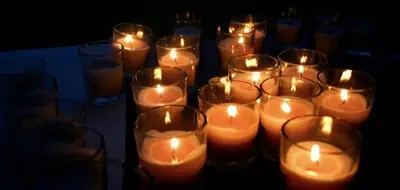A month ago, we shared an update on how ASAN is working to keep our community safe through the COVID-19 pandemic. This month, we want to acknowledge that while the United States is still struggling with COVID-19, we are also in the midst of critical national protests against police violence, anti-Black racism, and systemic white supremacy. At ASAN, our work on the pandemic continues, but we’d like to use this moment to update our community on how we are responding to the deaths of George Floyd, Breonna Taylor, Sean Reed, and so many more at the hands of the police.
On Friday, May 29th, ASAN issued a statement via social media:
We are mourning for George Floyd, Breonna Taylor, Sean Reed, and far too many more people of color who have been murdered by police. Our job is to fight for a more just world for people with disabilities — and because of that, we have a duty to stand against police violence and the systemic racism that fuels it. Black lives matter. Police must be held accountable for murders they commit.
Police violence and overpolicing affect people with disabilities, overwhelmingly people of color with disabilities, in many ways. Because of police violence, many of our community members are not safe — at work, at school, in public places, or in their own homes. If we want safety and justice for our whole community, we must hold police accountable when they kill, and demand change.
The statement linked to our position statement affirming that all social justice and civil rights issues are also disability rights issues.
ASAN is proud to be one of over 200 members of the Leadership Conference on Civil & Human Rights. So, we signed onto their June 1st letter to Congressional leadership, urging action on police violence and systemic racism.
On June 2nd, we included the following statement in our member newsletter:
After many recent murders of Black people by police — including the murders of George Floyd, Breonna Taylor, Sean Reed and far too many more — protests this weekend were met with escalating police violence. All of us in the disability community have a duty to stand against police violence, overpolicing, and systematic racism — not only because these systems directly impact so many disabled people of color, but because we hope to one day live in a just society. ASAN is committed to working in coalition with anti-racism organizations to end police violence.
If you want to support the fight against police violence, this article provides some useful places to start. Go here for more information on policy solutions to police violence and how you can get involved in advocacy in your local community. You can read our statement on how disability rights intersect with the rights of all marginalized people here.
On June 3rd, we helped the Consortium for Citizens with Disabilities (CCD) draft and release this statement. ASAN is a board member of CCD, a coalition of almost 100 national disability organizations. In this statement, the coalition mourns the murders of Black people by police, names the relationship between racism and ableism, and identifies initial steps the coalition will take to address this intersection. ASAN also endorsed the PEACE Act, which seeks to end the use of deadly force by police.
On June 4th, ASAN signed onto 2 additional Leadership Conference letters: one calling for a Department of Justice investigation into the killing of Breonna Taylor’s murder, and another calling on the Department of Justice to be transparent in its investigation into George Floyd’s murder. We also signed onto a letter calling for the United Nations to launch a Human Rights Committee investigation into police violence in the United States. These letters are not yet public; we will update this post with links when they go live.
ASAN has also been working on several additional initiatives which are not yet finalized. In the coming days and weeks, our community can expect to see:
- A plain language factsheet on police violence.
- Additional statements from coalitions of which ASAN is a part.
- Additional guidance from the Leadership Conference on legislative steps Congress should be taking to end police violence and address systemic racism, which ASAN will support and amplify.
In the past, ASAN has talked about police violence and ways our community can fight for change in our safety toolkit. We have worked to support Black autistic survivors of police violence like Neli Latson and Kayleb Moon Robinson, and in 2019, we endorsed the Leadership Conference’s Vision For Justice. As our organizational capacity has grown, and as our nation demands change louder than ever before, we are committed to taking on more of this work. We believe in a future where all members of our community are safe, free, and valued. Black lives matter. Now, and always.

